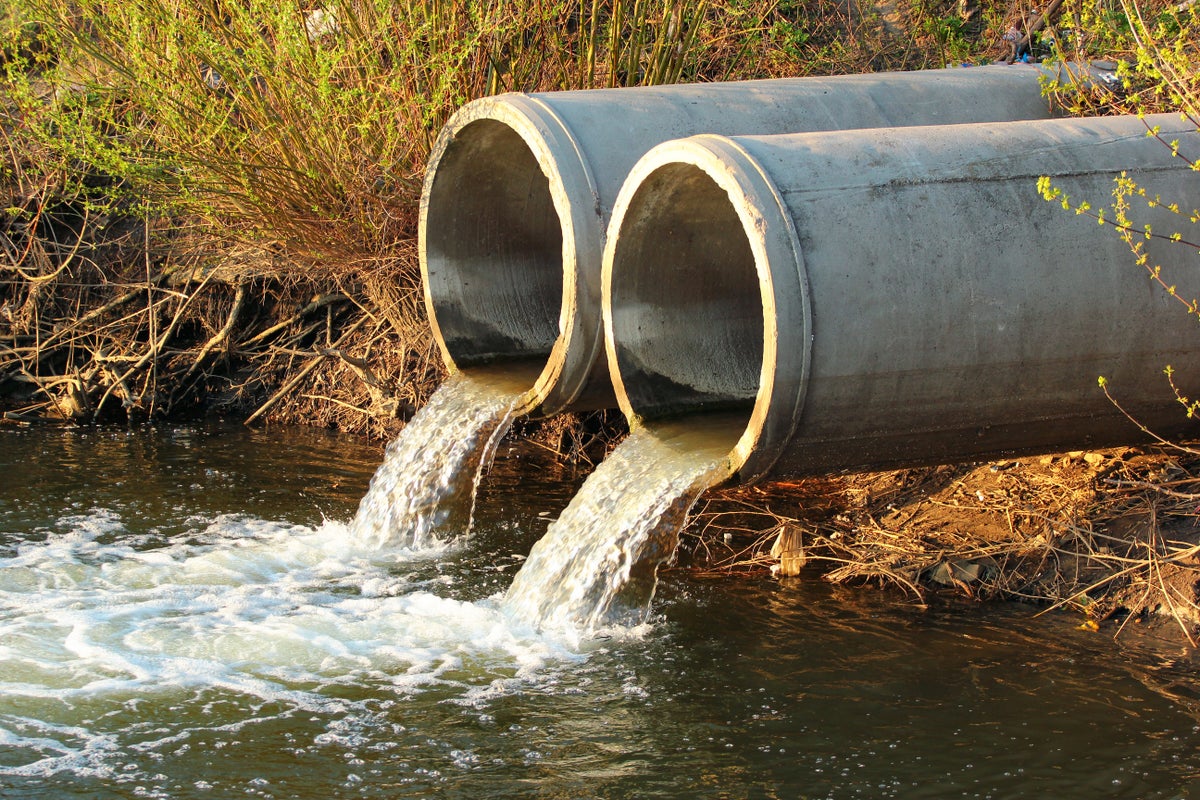
Some of the UK’s most precious conservation sites have been hit by hundreds of sewage overspills in the last year, according to Greenpeace.
Family-favourite locations such as the Lake District and the Brecon Beacons national park are among the beauty spots that have suffered hours of sewage overflows, according to the environment group’s investigative unit Unearthed.
The protected areas, including sites of special scientific interests (SSSIs) or special areas of conservation (SACs), are home to rare or threatened species and habitats.
Using mapping analysis, Greenpeace said it found sewage was poured into conservation sites for more than 300,000 hours last year, and identified almost 1,200 storm overflow pipes that discharged into or within 50m of internationally important ecosystems in 2022.
The Solent and Dorset coast, a large special protected area (SPA) spanning the West Sussex, Isle of Wight and Dorset coasts, is one of the worst-affected areas, with 14,174 hours of sewage spills last year, its data found.
Bassenthwaite Lake in the Lake District is among the popular nature hubs hit by sewage overspills— (Getty Images)
In the north’s Lake District, Greenpeace said the River Derwent and Bassenthwaite Lake received more than 6,600 hours of sewage spills in 2022, while Esthwaite Water, an SSSI in the south of the region, received over 2,700 hours.
This map below shows all the areas where sewage overspills took place in protected areas last year, according to Greenpeace, with darker spots showing the worst-hit areas.
Storm overflows are designed to prevent overwhelming sewerage systems by discharging wastewater into rivers.
According to the regulator Ofwat, spills come from storm overflows in emergency situations, for example, if there are sewer blockages or equipment failures at wastewater treatment works. This means the network discharges a mixture of rainwater, groundwater, and sewage.
Water companies told Unearthed they were committed to reducing their use of storm overflows.
Campaigners have called for greater monitoring on emergency overflows and tighter rules on storm overflow sewage discharges— (PA)
A spokesperson for Surfers Against Sewage said: “This is yet another shocking example of the wilful decimation of the natural world that the government is allowing.
“Weak regulation, hollowed out enforcement, pollution for profit – it’s a sewage scandal, plain and simple. No one is falling for their empty rhetoric any more, and the public are rightly rising up and demanding change.
“The grubby tentacles of the sewage scandal are everywhere – from excellent rated beaches, to sites of special scientific interest – and it’s clear that a complete system overhaul is needed to turn the tide on this foul state of affairs.”
A Defra spokesperson said: “Polluters must pay for their actions – so we are scrapping the cap on civil penalties and have given Ofwat new powers to toughen up rules on dividends so that people’s bills do not reward environmental damage. And the Environment Agency has launched a major criminal investigation into potential non-compliance at wastewater treatment works by water companies.
“Our Storm Overflow Discharge Reduction Plan set strict new targets on water companies and it prioritises action in ecologically important sites – such as SSSIs – so overflows in these areas are addressed.”
It comes after a new poll found that almost one in four UK sea swimmers are being put off from taking a dip because of sewage.
Just over 30 per cent of UK adults said they go sea swimming during the summer, and of these 23 per cent said they will not this year because of sewage dumping by water companies, according to the poll from the Liberal Democrats.
The poll, carried out by Savanta with 2,272 UK adults between July 21 and 23, found 43 per cent of regular beachgoers said they were less likely to visit the British seaside this summer because of the sewage discharges.
A Water UK spokesperson said: “Water and sewerage companies have been too slow to tackle spills from overflows and have a plan to put it right.
“The sector is proposing to invest £10 billion over the next seven years in an intensive programme to improve sewage overflows – tripling current levels of investment – as part of the biggest modernisation of sewers since the Victorian era. Chalk streams, and other sensitive sites, will be prioritised as part of this investment and will be among the first to receive funding.”







